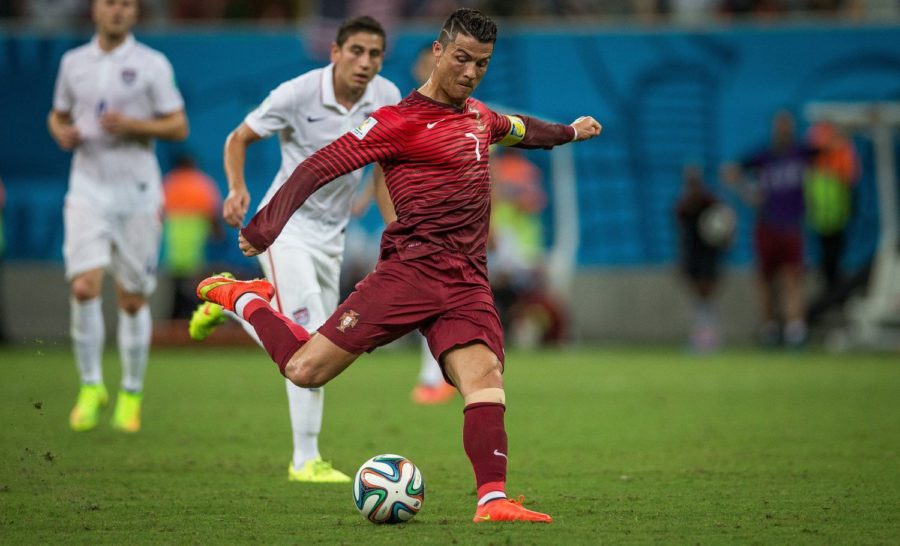Responsibility falls on soccer community to demand action on Qatar World Cup
December 3, 2014
In today’s world, there may not be an organization more beguiled and more embroiled in controversy than FIFA. Though it may seem daunting to stand up to an organization with the power of FIFA, the top players, coaches, federations and icons of soccer have a prime opportunity to demand action in the face of FIFA’s latest shameful episode.
FIFA’s most recent, and most pressing, controversy is that of the upcoming 2022 World Cup in Qatar. What began as just another corruption scandal for the organization has morphed into a humanitarian crisis with the potential to put a monstrous blight on the face of the world’s biggest sporting event.
FIFA is no stranger to controversy regarding the locations chosen for the World Cup. Brazil was criticized by some for its problems with stadium construction, dangers of crime in some of its cities and the fact that many Brazilians were opposed to hosting the World Cup in the first place. The site of the next World Cup, Russia, has also been criticized for its adoption of anti-gay laws and its recent invasion of Eastern Ukraine and annexation of Crimea. None of these locations, though, present the problems that FIFA’s awarding of the World Cup to Qatar have.
Qatar being chosen to host the World Cup should be enough to cause outrage. Allegations of corruption have been rampant since Qatar was awarded the event in 2011. The allegations are essentially that members of the Qatari World Cup bid committee bribed FIFA officials. These allegations were given greater credence given the recent revelation in an FBI report that detailed that a FIFA official received $2 million in compensation from members of the Qatari bid committee.
Outside of corruption being the reason Qatar was awarded the World Cup, the prospect of the small Arab Gulf nation playing host is rife with other issues. Much of this has to do with Qatar’s questionable record on numerous human rights issues from gender equality to LGBT rights.
Get The Daily Illini in your inbox!
From a fan perspective, a potential World Cup in Qatar has numerous problems. Qatar’s laws prohibiting the sale and consumption of alcohol may drive fans away from attending and mean the loss of sponsorship revenue from alcohol manufacturers.
Then there is the prospect of the weather. Summer temperatures in Qatar can often be as high as 120°F. If the heat causes problems for players in Brazil, imagine what an even hotter climate can result in. To minimize the effects of the heat, there have been calls to move the tournament to the winter. Such a decision will undoubtedly be met with resistance from leagues in Europe, who would be forced to change their schedules.
All the problems associated with a potential World Cup in Qatar pale in comparison to the humanitarian crisis.
Qatar has been roundly criticized for its treatment of the large population of foreign migrant workers employed in stadium construction. According to a report by Amnesty International, migrant workers are paid little, are forced to work in poor conditions and are denied access to visas. By all accounts, Qatar is using slave labor in preparation for 2022. So far, over 1,200 workers have died.
Nothing, not even the World Cup, is worth the death of thousands. Imagine the shame of Germany or Brazil celebrating in a stadium thousands of workers died to build.
For all of these reasons, it is time for the soccer community to demand en masse that FIFA move the 2022 World Cup.
FIFA is a powerful entity in itself, but the football federations of Germany, England, Brazil and Argentina are also organizations that hold tremendous influence. Calls to action — and even threats to boycott the World Cup if not moved from Qatar — from the powers of world soccer may be just what is needed to force the issue.
The current stars of soccer, from Messi to Ronaldo, should actively take a stand and encourage other players to say enough is enough.
Former greats and current ambassadors to the sport such as Pele and Diego Maradona and Franz Beckebauer should wield their high stature to convince FIFA President Sepp Blatter to move the World Cup.
Lastly, one should call upon corporate sponsors to threaten to boycott and pull out of advertising. Such an action from multibillion-dollar multinational corporations may be what ultimately forces FIFA’s hand. It’s time to hit FIFA where it hurts: its bank account.
In many ways, lobbying from the entire soccer community is not only important, it is necessary.
It may sound alarmist, but the World Cup in Qatar absolutely cannot happen. It would be a brutal disgrace to the event, and to the sport. Not to mention the public outcry and anger that would be directed at FIFA.
Like the Olympics, the World Cup is a global event that represents the power of sports in uniting cultures across the globe for a unifying event. An event like the World Cup is supposed to exemplify the progress the world has made.
Moving the World Cup away from Qatar might be the defining issue in the soccer community, and given that burden, it is the responsibility of the icons of the sport to demand that FIFA be on the side of human rights and dignity.
It should even fall upon the shoulders of every sports fan, soccer fan or not, to be aware of the corruption and abuses associated with the world’s most popular sporting event. The lives of countless more migrant workers may lie in the balance.
Dan is a junior in Media. He can be reached at [email protected] and Twitter @danescalona77.







